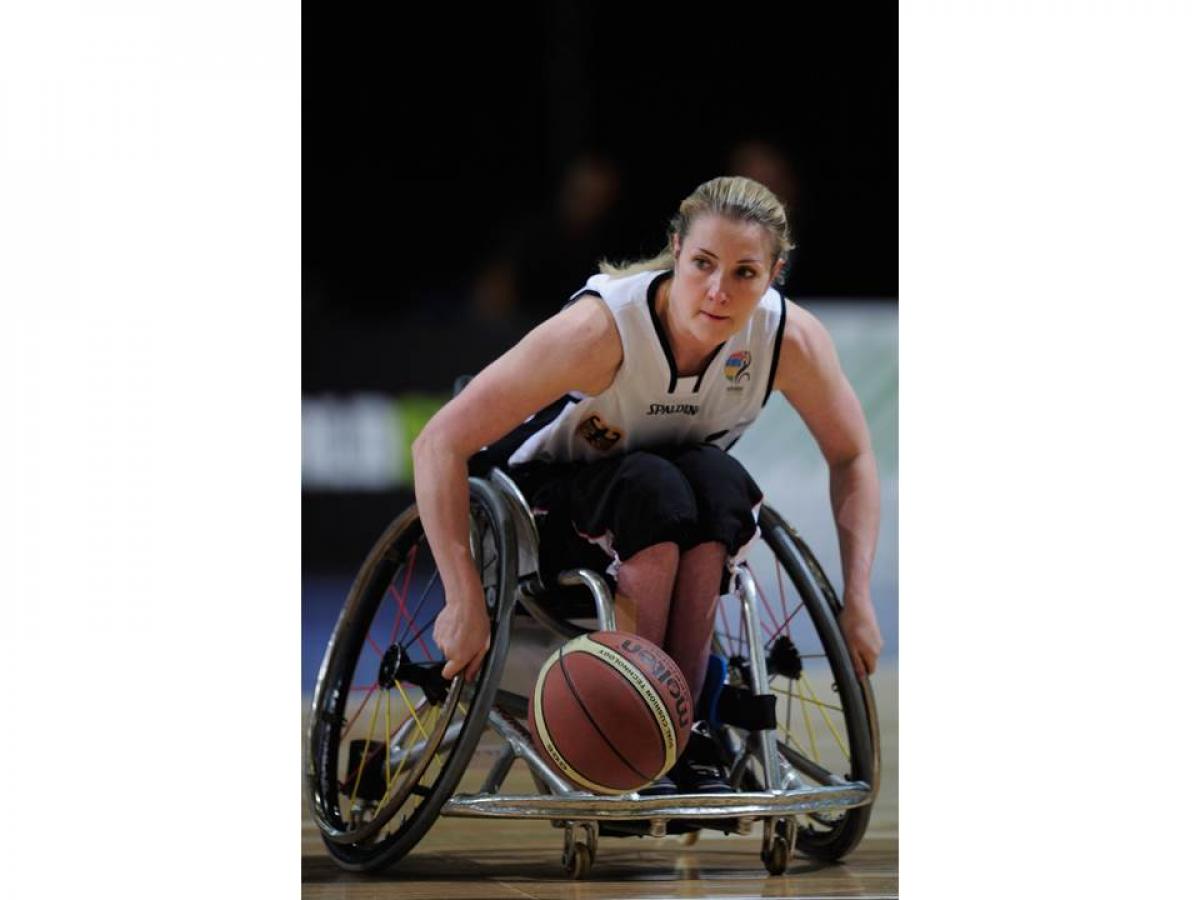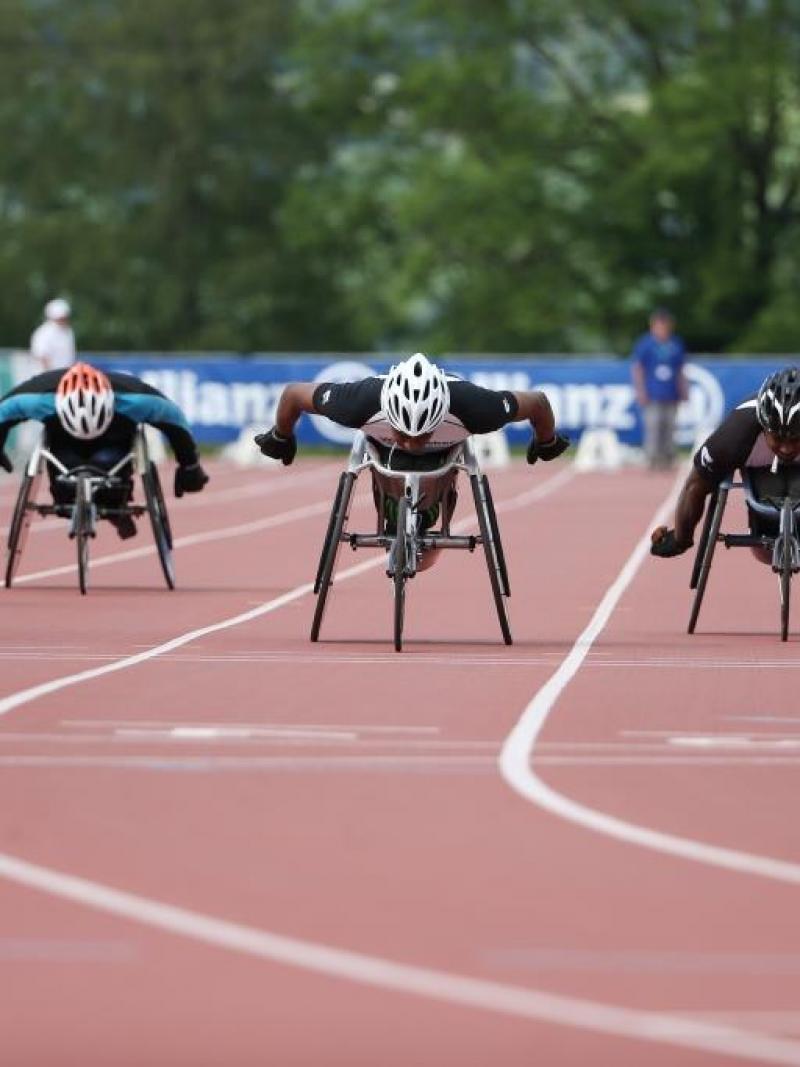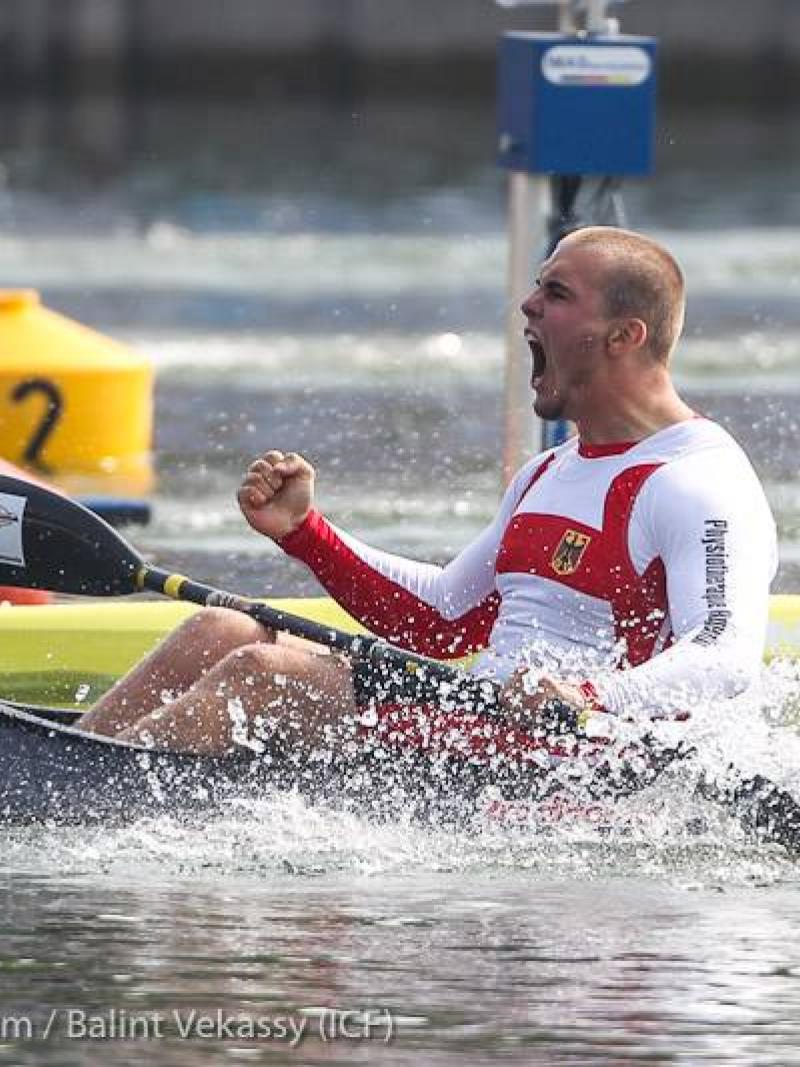Newcomer Müller makes quick splash in para-canoe
The former German wheelchair basketball player is hoping to build off her silver medal from her Worlds debut. 10 Oct 2015
After retiring from wheelchair basketball in 2014, Edina Müller has turned her attention to para-canoing
“I am very ambitious and I give 100 per cent in training as well as in the competition. Besides, I have a great social environment that supports me a lot."
Despite having little competition experience, Germany’s Edina Müller managed to win silver at the International Canoe Federation (ICF) Canoe Sprint and Para-Canoe World Championships. With that, the 32-year-old qualified for the Rio 2016 Games, where she will make her third Paralympic appearance but first in para-canoe.
“I was nervous before the race, but I knew that the second place would be possible, if everything went well,” said Müller, who finished second in the women’s KL1 200m at the Worlds held 19-23 August in Milan, Italy. “However, I mostly focused on the quota place for Rio and in the end, I achieved both. This makes me feel very happy.”
Müller’s first real international competition was in May’s 2015 European Championships in the Czech Republic. In a strong field, she finished second behind Great Britain’s current world champion Jeanette Chippington. Still, the result did not discourage Müller.
“The Europeans are very strong competitors, that is why the second place in Racice gave me lots of confidence for my race in Milan”, Müller said.
By securing her spot for Rio 2016, Müller can focus on her preparations for the Paralympics, where para-canoe will make its debut.
“There are many things I can still improve, including my start, the paddle technique, my strength and endurance,” Müller said. “I am on the water every day and I want to go to Rio well prepared to win a medal, which is not so unrealistic.”
“Being part of this generation of para-canoers in Rio is thrilling because we can make history for our sport and for the Paralympics,” she said.
The German is not a newcomer in the Paralympic world. Müller was part of the German wheelchair basketball team that won gold at London 2012 and silver at Beijing 2008.
Two years after London, Müller wanted a change.
When she retired from wheelchair basketball in 2014, she was not thinking about taking up para-canoe as a high performance sport until a friend – a racing canoeist – invited her to the national training centre to try a race kayak.
“I loved the inclusiveness of para-canoe and when I started in 2014, I already knew how to handle the boat. I was well trained so I did not start from zero,” Müller said. “I am very ambitious and I give 100 per cent in training as well as in the competition. Besides, I have a great social environment that supports me a lot. Without them I would not have been able to achieve so many things.”
Müller also benefits also from her years in wheelchair basketball.
“Mostly, it helps me with my preparation and training. I know my body very well and I am aware of what I need to be in shape on day ‘X,’” she said.
“Even after years of competing, the tension and excitement before a competition are still here. I believe that it is time to quit if this feeling is not existing anymore.”






